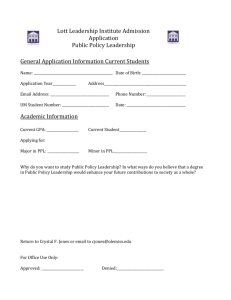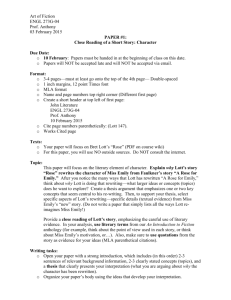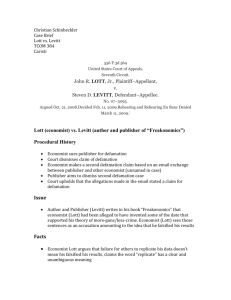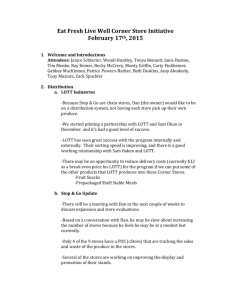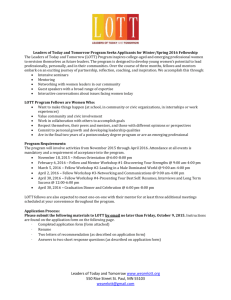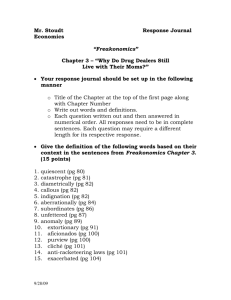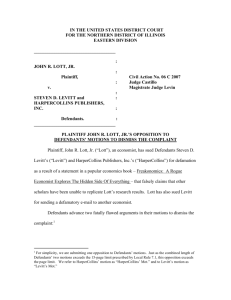File - Ben Nathan Kruis
advertisement
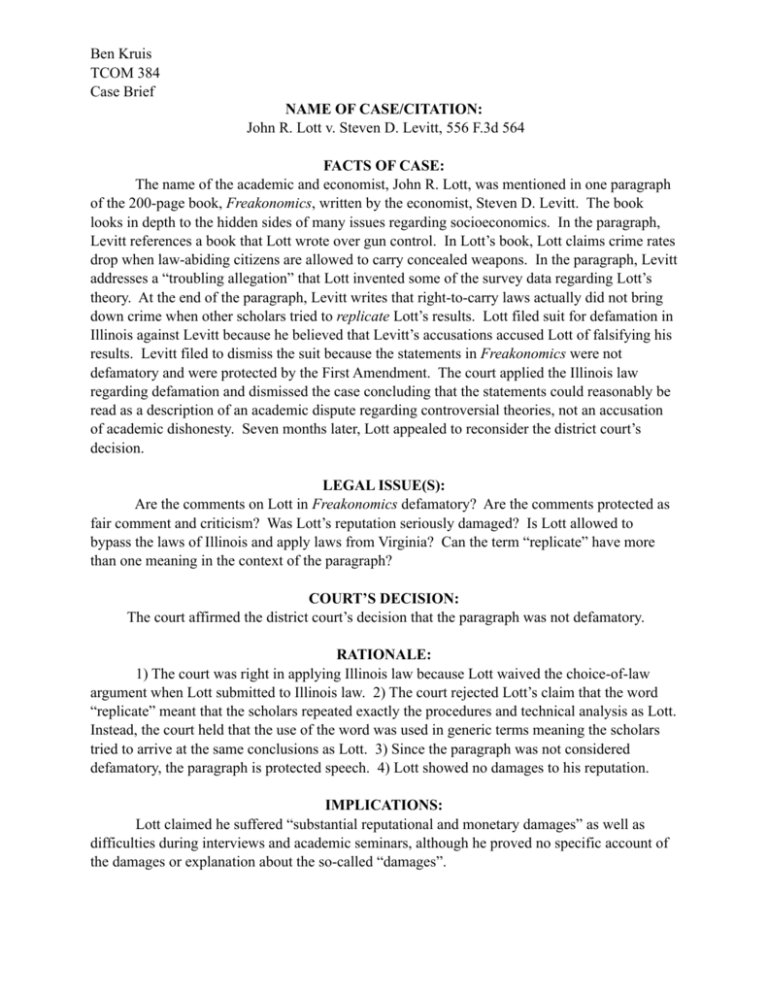
Ben Kruis TCOM 384 Case Brief NAME OF CASE/CITATION: John R. Lott v. Steven D. Levitt, 556 F.3d 564 FACTS OF CASE: The name of the academic and economist, John R. Lott, was mentioned in one paragraph of the 200-page book, Freakonomics, written by the economist, Steven D. Levitt. The book looks in depth to the hidden sides of many issues regarding socioeconomics. In the paragraph, Levitt references a book that Lott wrote over gun control. In Lott’s book, Lott claims crime rates drop when law-abiding citizens are allowed to carry concealed weapons. In the paragraph, Levitt addresses a “troubling allegation” that Lott invented some of the survey data regarding Lott’s theory. At the end of the paragraph, Levitt writes that right-to-carry laws actually did not bring down crime when other scholars tried to replicate Lott’s results. Lott filed suit for defamation in Illinois against Levitt because he believed that Levitt’s accusations accused Lott of falsifying his results. Levitt filed to dismiss the suit because the statements in Freakonomics were not defamatory and were protected by the First Amendment. The court applied the Illinois law regarding defamation and dismissed the case concluding that the statements could reasonably be read as a description of an academic dispute regarding controversial theories, not an accusation of academic dishonesty. Seven months later, Lott appealed to reconsider the district court’s decision. LEGAL ISSUE(S): Are the comments on Lott in Freakonomics defamatory? Are the comments protected as fair comment and criticism? Was Lott’s reputation seriously damaged? Is Lott allowed to bypass the laws of Illinois and apply laws from Virginia? Can the term “replicate” have more than one meaning in the context of the paragraph? COURT’S DECISION: The court affirmed the district court’s decision that the paragraph was not defamatory. RATIONALE: 1) The court was right in applying Illinois law because Lott waived the choice-of-law argument when Lott submitted to Illinois law. 2) The court rejected Lott’s claim that the word “replicate” meant that the scholars repeated exactly the procedures and technical analysis as Lott. Instead, the court held that the use of the word was used in generic terms meaning the scholars tried to arrive at the same conclusions as Lott. 3) Since the paragraph was not considered defamatory, the paragraph is protected speech. 4) Lott showed no damages to his reputation. IMPLICATIONS: Lott claimed he suffered “substantial reputational and monetary damages” as well as difficulties during interviews and academic seminars, although he proved no specific account of the damages or explanation about the so-called “damages”.
